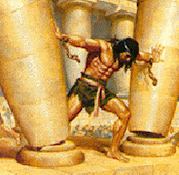SRI LANKA HOLIDAYS: BUDDHA & BUDDHISM
Following is an extract from “The Revolt in the
The Buddha addressed Himself, not to select disciples, but to all people, & proclaimed a deliverance from the sins & sorrows of life by self-conquest & universal love, & to his message was added the magnetism of His personality & the undying influence of a noble life. That was the secret of His marvelous success. While denying the existence of any external being or God, who could interfere with the immutable law of cause & effect, His teaching linked together mankind as parts of one universal whole, & denounced the isolated self-seeking of the human heart as the heresy of individuality. Its mission was to make men moral, kinder to others, & happier themselves, & not to propitiate imaginary deities. It accordingly founded its teaching on man’s duty to his neighbor, instead of on his obligation to gods.
The Buddha was a far greater heretic & rebel, from the point of view of Brahmanism or orthodox Hinduism, than Christ was with regard to Judaism. The outstanding intellectual achievement of the Buddha was the overthrow of the foundation of Brahmanism, as of most other religion, the belief in God. Bertrand Russell calls the Buddha, “the greatest of atheists of all time.”
“In the Buddha,” writes H. G. Wells in The Three Greatest Men in History, “you seek clearly a man, simple, devout, lonely, battling for light-a vivid human personality, not a myth. Beneath a mass of miraculous fable I feel that there also was a man. He, too, gave a message to mankind universal in its character. Many of our best modern ideas are in closest harmony with it. All the miseries & discontents of life are due, he taught, to selfishness. Selfishness takes three forms-one, the desire to satisfy the senses; another the craving for immortality; & the third is the desire for prosperity, worldliness. Before a man can become serene he must cease to live for his senses or himself. Then he merges into a greater being. Buddha in different language called men to self-forgetfulness five hundred years before Christ. In some ways he is nearer to us & our needs. He was more lucid upon our individual importance in service than Christ & less ambiguous upon the question of personal immortality.”
The Buddha’s teaching, unlike these of theistic teachers, has not in any manner got into conflict with modern science. In truth, it has been quite the contrary. For, the findings of science have often supported & vindicated His own views about the world & the nature of existence.
“A wonderful philosophy of dynamism was formulated by Buddha 2500 years ago,” says Professor Radhakrishnan in his Indian Philosophy, “a philosophy which is being recreated for us by the discoveries of modern science & the adventures of modern thought. The electro-magnetic theory of matter has brought about a revolution in the general concept of nature of physical reality. It is no more static stuff but radiant energy. An analogous change has pervaded the world of psychology, & the title of a recent book by M. Bergson, Mind Energy, indicates the change in the theory of physical reality.
‘Impressed by transitoriness of objects, the ceaseless mutation & transformation of things, Buddha formulated a philosophy of change. He reduces substances, souls, monads, things to forces, movements, sequences & processes, & but a series of manifestations of becoming & extinctions. It is a stream of becoming. The world of sense of science is from moment to moment. It is recurring rotation of birth & death. Whatever be the duration of any state of being, as brief as a flash of lighting or as long as a millennium, yet all is becoming. All things change. All schools of Buddhism agree that there is nothing human or divine that is permanent.”
Buddhism attempted to shift the centre from the worship of God to the service of man. The Buddha was more keen about teaching a new sense of duty than about founding a new theory of the universe. He started a religion independent of dogma & priesthood, sacrifice & sacrament. He made it clear that salvation did not depend on accepting doubtful dogmas or doing deeds of darkness to appease an angry God. It depended on perfection of character & devotion to the good. With this message of morality & love, Buddhism addressed itself to kings, princes & Brahmins as well as to the poor, the lowly & the disinherited.
For twelve years Buddhism held sway in the land of its birth. During this period it radiated its light to all quarters of the then accessible world. Alexander the Great, in his conquering march upon
Like the sun, Buddhism entered alike the palaces of kings & the little huts of the poor, beautifying & ennobling them. Within a few years after the enlightenment, the Doctrine had spread far & wide, attracting all & sundry by its piety, its wisdom, & its consolation. Within a few hundred years after the Buddha’s death, his gospel had scaled the
But soon the night fell-in obedience to the inevitable law of impermanence, which the Buddha Himself had repeatedly emphasized-night, filed with heavy slumber, & with weird & futile dreams sometimes; & in realm after realm the faded, flickered & died. The historical fact is that Buddhism instituted a spiritual & social democracy which was dissatisfied to the priestly caste who had held the common people in bondage for so long; & and also that, when about the 6th century of the Christian era, caste again became dominant, Buddhism faded out of India.
Although the ‘Prophet’ was thus not ultimately honoured in His own land, the ‘Wheel of the Law’ which He set in motion, through love of humanity, in order to release it from unhappiness, held out in other kingdoms-the eternity of its universal hope, the immortality of its boundless love, the indestructibility of the element of faith in final good, & the dignity of the proudest assertion ever made of human freedom.
In those kingdoms it flourished & triumphed, & one such kingdom was this







































































































0 Comments:
Post a Comment